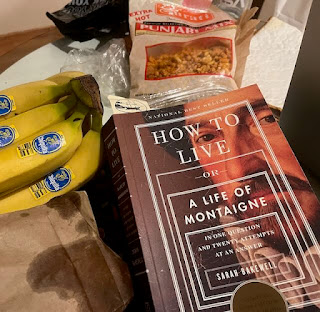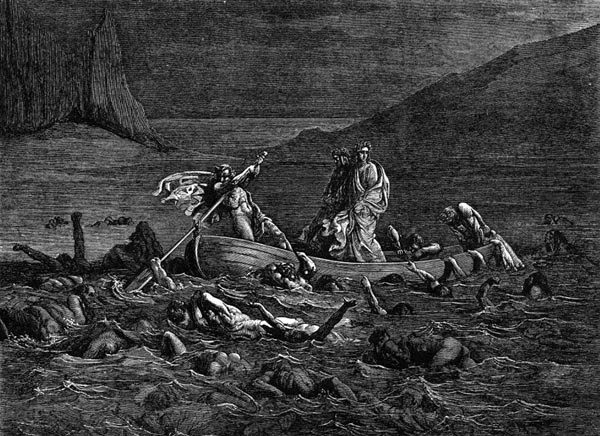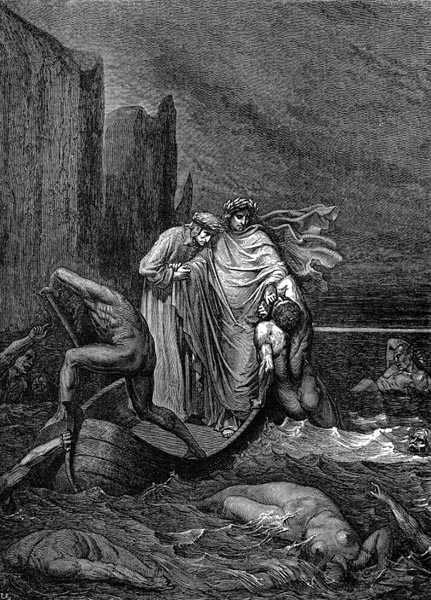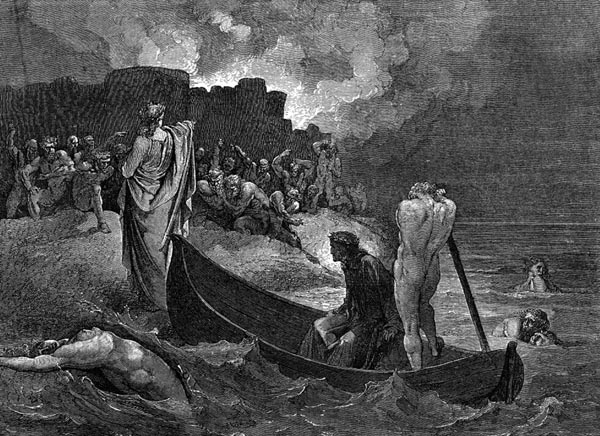This is a truly touchy topic all around. I'm listing here some of the aspects that I feel are critical to understand (no, be aware of is a more realistic goal). Assume that I am torn in different directions and not pushing an answer one way or the other.
Part I of these posts gives an intro to these posts and covers:
1. PROPAGANDA, MISINFORMATION, OBLITERATION OF TRUTH
2. THE PROBLEM OF NETANYAHU
3A. HISTORIC ANTI-SEMITISM
3B. THE HOLOCAUST
PART II
4. GENOCIDE
The word "genocide" was coined to give a name to what happened to the Jews during the Holocaust.
"Seventy years ago this fall [2014], the word "genocide" made its debut into the English language, on page 79 of the 674-page Axis Rule in Occupied Europe [which you can find here in Reading 3], in a chapter called "Genocide—A New Term and New Conception for Destruction of Nations."
The writer was Raphael Lemkin, a Polish-born lawyer who had fled the persecution of the Holocaust and moved to the United States in 1941. A few months after his arrival, he heard a radio address in which British Prime Minister Winston Churchill told listeners about the horrors of World War II. . .
[Lemkin] decided to create a name for the crime without a name. He came up with genocide, which he defined as the destruction of a nation or an ethnic group. He said he created the word by combining the ancient Greek word genos (race, tribe) and the Latin cide (killing). In 1948, nearly three years after the concentration camps of World War II had been closed forever, the newly-formed United Nations (UN) used this new word in the "Convention on the Prevention and Punishment of the Crime of Genocide," a treaty that was intended to prevent any future genocides."
The US Holocaust Museum defines the term in more detail
"Genocide is an internationally recognized crime where acts are committed with the intent to destroy, in whole or in part, a national, ethnic, racial, or religious group. These acts fall into five categories:
- Killing members of the group
- Causing serious bodily or mental harm to members of the group
- Deliberately inflicting on the group conditions of life calculated to bring about its physical destruction in whole or in part
- Imposing measures intended to prevent births within the group
- Forcibly transferring children of the group to another group
There are a number of other serious, violent crimes that do not fall under the specific definition of genocide. They include crimes against humanity, war crimes, ethnic cleansing, and mass killing."
Netanyahu would argue that his intent is to secure Israel from terrorist attack, not to kill Palestinians.
Whether what's happening in Gaza is genocide or one of the other crimes listed probably doesn't matter too much, but I'm sure those fighting against Israeli bombing in Gaza are relishing the irony of charging Israelis with genocide.
Since I wrote these words on genocide, the South African complaints about Israeli genocide to the International Court of Justice has become available. In it, starting from page 60, they quote a number of Israeli officials, in different ways saying things that suggest Israeli intent to obliterate Gaza. Here's just one example from Prime Minister Netanyahu:
"The Israeli Prime Minister also returned to the theme in his ‘Christmas message’, stating: “we’re facing monsters, monsters who murdered children in front of their parents . . . This is a battle not only of Israel against these barbarians, it’s a battle of civilization against barbarism”.445 On 28 October 2023, as Israeli forces prepared their land invasion of Gaza, the Prime Minister invoked the Biblical story of the total destruction of Amalek by the Israelites, stating: “you must remember what Amalek has done to you, says our Holy Bible. And we do remember."
"The Prime Minister referred again to Amalek in the letter sent on 3 November 2023 to Israeli soldiers and officers.447 The relevant biblical passage reads as follows: “ The Prime Minister referred again to Amalek in the letter sent on 3 November 2023 to Israeli soldiers and officers.447 The relevant biblical passage reads as follows: “ Now go, attack Amalek, and proscribe all that belongs to him. Spare no one, but kill alike men and women, infants and and sucklings, oxen and sheep, camels and asses."
This is the tenor of the evidence of intent that the South African complaint offers to International Court of Justice. And as I write this, I always keep in mind the possibility that this whole document is a fake, that the quotes are fabricated. But I don't think so. Some of the Prime Minister's remarks are almost identical to the "Civilization versus Savages" theme I posted above in Section 2 on Netanyahu that appeared in his 1995 book.
But remember, these are like the prosecutor's opening argument. It's their side of the story. The defense hasn't yet had a chance to put things in context or to refute the arguments.
Because I'm taking forever to write this, I can add the Israeli response. Ha'aretz, the oldest Israeli newspaper, has this report on the Israeli response to the South African allegations.
[Being mindful of Issue #1 - Propaganda, Misinformation - the first link in the previous sentence is to the Encyclopedia Brittanica article on Ha'aretz. The second links to their report.]
5. ZIONISM
This is another term that gets bandied about. I'm not going to try to define it here, but you can see a couple of differing definitions/commentaries at the links below.
Wikipedia's treatment
The Foreign Policy Institute's take
The Promise and Failure of Zionism
Many people seem to have trouble distinguishing between Zionists, Jews, and Israelis and use two or all of those terms interchangeably to mean the same thing. As though all Christians believe the same thing or act the same way. People who identify (or are labeled) Jews come in many flavors, beliefs, ideologies, lifestyles. The same is true of Israelis.
6. ISRAELI MISTREATMENT OF PALESTINIANS
After World War II much of the world was shocked to learn of the mass extermination of Jews by the Nazis. (If you don't believe the Holocaust happened, don't comment here. I'll delete it as soon as I see it. Rather educate yourself and get past your ignorance.) Among Jews, the campaign to create a Jewish state in historic Israel was not universally supported. But after the war, with many displaced Jewish refugees, many of them survivors of the Holocaust, sentiment supported establishing the state of Israel. The newly formed United Nations approved.
For the first years, the world heard heartwarming stories of the "Land of Milk and Honey," of the miracle in Israel making the desert bloom When Israel was attacked in 1967 by surrounding Arab countries, Israel fought back and quickly defeated their enemies and kept the territory they took. Moshe Dayan was an international hero, easily recognized with his black eye patch.
But from the beginning the story wasn't so rosy. Jews forced Arabs to abandon their homes and land. Many fled to other Arab countries. Over the years attempts to establish peace were thwarted by Palestinian rejection of the idea of Israel even existing. Israeli supporters in the West used this rejection to show the Arabs were intransigent. But it's clear that from the Arab perspective, the creation of Israel was similar to other colonial conquests where the indigenous people were simply removed for the colonists. Even if the colonists were themselves a displaced people.
In the last 20 years or more, Israel has increasingly been a very oppressive ruler over the occupied territories. Israel's annexation of West Bank Arab lands to build settlements for Israelis has exacerbated things. People began talking about an Israeli apartheid. One can easily see similarities between the occupation and the way Black Americans are frequently treated by the police in the US.
It's clear that many Israeli soldiers treat Palestinians with disdain. There are many places you can read about this, but I would offer Colum McCann's Apeirogon as a good place to start. [I highly recommend reading Apeirogon] It's the story of one Palestinian and one Jewish father who have both lost teenage daughters to the violence in Israel. They are brought together and work with a group that advocates for peace and understanding. There are very detailed descriptions of the indignities that Palestinians suffer daily.
I believe that this treatment comes from
- Israelis always feeling threatened (and Hamas does its best to stir up those fears) and
- the ethnocentrism evidenced in Netanyahu's belief they are fighting a noble war between civilization and savagery. [See Part I on Netanyahu]
As I mentioned in
the post on The Battle of Algiers, people with little or no power, dominated by another people with lots of power, have few options other than guerrilla warfare.
I'd also mention that other Arab countries tended to not take Palestinians as refugees into their countries. One explanation was that by making Israel the collective enemy of Arabs, they could distract the Arab world from intra-Arab conflicts, and they could distract their own citizens from protesting their own authoritarianism. Another explanation has been they simply didn't think they could handle the influx of so many Arabs with a somewhat different history in their own countries.
7. TEACH YOUR CHILDREN WELL - PALESTINIAN AND ISRAELI EDUCATION
There are lots of articles about how Palestinian schools teach hate, such as this 2022 Times of Israel headline:
"UNRWA textbooks still include hate, antisemitism despite pledge to remove — watchdog
Israeli organization says that rather than taking the material out of the 2022 curriculum, the UN Palestinian refugee agency has merely taken it off its public education portal"
It takes a little more digging to find counter arguments such as this one from The Palestine Chronicle by Rima Najjar:
Zionism is an insidious ideology. Its ideologues often gain traction by well-placed and oft repeated constructs – in films and TV series, in posts and comments on social media, and even in academia. So, it is no wonder that people end up having ideas about certain things, like the nature of Israel, the Zionist Jewish state, or the nature of Palestinian Arab culture and identity, or the nature of Jewish culture and identity, as if by osmosis.
One of these “memes” in the air, if you will, is the oft repeated comment by hasbara agents on social media that says Palestinians teach their children to hate Jews. This notion can also be found in numerous attacks on the Palestinian Authority curriculum with the same accusation of “teaching children to hate Jews”, when in fact, the opposite is true, as is often the case with Zionist propaganda (see Nurit Peled-Elhanan’s Palestine in Israeli School Books: Ideology and Propaganda in Education – Library of Modern Middle East Studies).
My understanding is that
"'teaching children to hate Jews', when in fact, the opposite is true, as is often the case with Zionist propaganda"
doesn't mean the Palestinians teach their kids to love Jews, but rather means that Israelis teach their kids to hate Palestinians.
Michael Kaplan gave this example, in 2014, of Jews teaching their kids to hate Palestinians. When Israelis Teach Their Kids To Hate.
Two, more thorough, academic studies of Israeli text books suggest it's more subtle, but just as invidious.
Here's the abstract of 2012 book by Nurit Elhanan-Peled
"The present book presents a critical multimodal study of one aspect of the Israeli-Zionist narrative as it is reproduced in school books of three disciplines: history, geography and civic studies. It consists of an analysis of the visual and verbal texts that represent the 'others' of Zionist Jews, namely Palestinians – both the citizens of Israel and the non-citizens who have been living under a military regime in the occupied Palestinian territories since 1967.The book shows that Israeli textbooks use racist discourse, both visually and verbally to represent Palestinians."
I only could find a few passages at the link to the publisher, but here's one to give you a sense of the book:
"... Texts present Palestine before 1948 as barren land and empty territory, abandoned since biblical times, waiting for Jews to redeem it while expunging Palestinian history and culture transforming 'Palestinian Arab students into "present absentees" as they learn about "the land of Israel"' (Abu-Saad, 2008: 24) without them. These texts are 'designed to "de-educate", or dispossess, Indigenous Palestinian pupils of the knowledge of their own people and history' (Abu-Saad, 2008: 17;Al-Haj, 2015;Mazawi, 2011;Peled-Elhanen, 2012;Raz-Karkotzkin, 2001). Textbooks construct Palestinians as 'backward, unproductive and untrustworthy; or even more negatively as murderers or rioters' while Jews engage 'in a justified, even humanitarian, war against an Arab enemy that refused to accept or acknowledge the existence and rights of Jews in Israel' (Abu-Saad, 2019: 101; Bar-Tal, 2001;Meehan, 1999). ..."
A 2020 Ha'aretz article - eight years later than the Elhanen book - describes a Tel Aviv University study:
"Ben-Amos set out to explore how Israeli textbooks and pre-college matriculation exams address the occupation. He calls the situation 'interpretive denial.'”
Ben-Amos set out to explore how Israeli textbooks and pre-college matriculation exams address the occupation. He calls the situation “interpretive denial.” . . .
In most textbooks, “the Jewish control and the Palestinians’ inferior status appear as a natural, self-evident situation that one doesn’t have to think about,” he writes in an article to be published in a book on teaching history edited by Eyal Naveh and Nimrod Tal. . . .
Ben-Amos says the textbooks’ ignoring of the occupation or attempts to normalize it stem from self-censorship. In the absence of clear guidelines, nobody wants to be blacklisted and denounced, which was the fate of teachers and publishers who tried to convey a more nuanced message than the one permitted by the Education Ministry. . . .
Elhanen has continued writing articles on the subject of how 'the other' is treated in Israeli schools and textbooks. You can see a list of books and articles here, some with links to full text.
I did find one more book- Palestinians in Israeli Textbooks (2016) - which seems to say that it was bad in the past, but things are much better now.
It's hard to find ways to peace when Palestinian children are regularly taught in schools and in the streets to hate Jews and when Jewish children are given texts that either omit Palestinians or reinforce the idea that Jewish superiority over Palestinians is the natural order of things.
Though as one Palestinian responded (paraphrasing), "Palestinian kids don't need to be taught in schools to hate Jews. They pick that up by living under Israeli occupation."
Part III is still being written. Here's the link.










